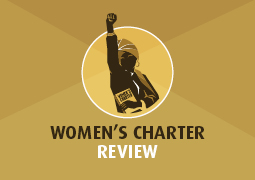
Northern Cape women who participated in the parliamentary consultation process on the review of the Women’s Charter have called for the upliftment of rural women who often bear the brunt of the worst inequalities and suffering due to poverty and underdevelopment in their areas.
The consultation, which was held via video conferencing technology due to the Covid-19 ban on physical gatherings, was led by the Deputy Chairperson of the National Council of Provinces (NCOP), Ms Sylvia Lucas, and participants included Members of Parliament, municipal councillors, statutory organs supporting the Constitution, as well as civil society organisations.
Ms Lucas said the consultations will move district by district throughout the country to gather information that can be used on the review of the Women’s Charter to further the objectives of women empowerment.
She said the consultations were an opportunity for the public to directly engage with public representatives, as well as government agencies in order to find lasting solutions for qualitative gender transformation and to translate the Charter from theory into reality.
Following consultations in ZF Mgcawu, Frances Baard and John Taolo Gaetsewe districts last month, this week the focus was on the Pixley ka Seme District.
“We all know that women and children in this region have suffered the most with the closing of the rail manufacturing yard, which led to high prevalence of the foetal alcohol syndrome because of joblessness and poverty. So use this opportunity to arm us, as your representatives with strategies, information and tactics to make the charter a reality,” said the Deputy Chairperson.
She also reminded the participants that Parliament’s constitutional mandate requires that it provides meaningful opportunities for the involvement of the public in its legislative and other processes.
Ms Luca said beyond the euphoria of 1994, when the Women’s Charter for Effective Equality was adopted, concerns have mounted at the widening gap between the country’s lofty constitutional commitments and policy affirmations around gender equality on the one hand.
“Women continue to bear the brunt of inequality, trapped by poverty, economic exclusion, violence and femicide. The disjuncture between public endorsement of gender equality and actual institutional practice is, however, particularly poignant in South Africa in part because many of the indicators of policy failure are so stark.
“Hence, as a people-centred Parliament we took a resolution at the 2019 Women’s Parliament to embark on a 25-Year Review of the entire women’s rights regime in order to take stock of the progress made since the adoption of the 1994 Women’s Charter for Effective Equality. Through this exercise, we will also assess the systematic weaknesses that continue to impede the realisation of gender equality in South Africa.”
One of the participants, Ms Asanda Ngonyama, suggested that the government must fast-track interventions to empower women in entrepreneurship as they have been “traditionally excluded from economic activities”.
She also said there is an urgent need to develop rural areas and provide basic services such as the provision of water and proper sanitation facilities.
“In our rural areas if there is no water in the house, it is mainly the woman who has to make sure that there is water in the house, these services must be provided by the state to rescue our women from the distress that comes with travelling long distances to fetch water,” Ms Ngonyama argued.
Another contributor to the summit Ms Oyama Botha said the charter must now prioritise action to empower women, instead of focusing on “what is not done and challenges”.
Other suggestions included the call for the free provision of sanitary products, the establishment of more support centres for victims of abuse, as well as training in entrepreneurship to empower women to start their own businesses.
“We are still far behind in realising the objectives of the charter, as we review the charter we must make sure it provides an opportunity to uplift women in rural areas, as they often face the worst inequalities,” said Ms Jane Mafilika.
The summit also heard that gender inequality was one of the key drivers of the debate for the skewed access to health care between men and women, and that equality in other sectors, as experienced by women, does not always arise naturally.
Ms Lucas added: “It is for this reason why gender transformation interventions must be designed in a manner that brings together all sectors of society, in order to ensure continued progress in the realisation of women’s rights. We must use every avenue possible to inculcate a new culture of equality and non-sexism in our communities.”
By Sakhile Mokoena
4 June 2020

